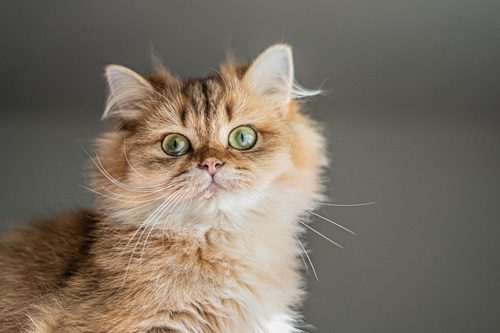Cats are often known for their meticulous grooming habits and composed demeanor. So, when you notice your cat drooling, it can raise concerns. While occasional drooling might be harmless, persistent or excessive drooling could signal an underlying issue. This blog aims to help you understand the reasons behind your cat’s drooling to help you decide when to seek professional help. At Country Club Animal Hospital in Miami, FL, we’re here to guide you through recognizing when to take action for your cat’s health. Call us at (305) 663-3300 or book an appointment online if you have concerns about your cat drooling.

Understanding Normal vs. Abnormal Cat Drooling
Not all drooling is cause for alarm. Cats can drool for several harmless reasons, but distinguishing normal drooling from something that needs medical attention is essential. Cats may drool briefly when they are relaxed and content, such as during a petting session. This type of drooling is usually minimal and stops quickly. However, drooling that is persistent, excessive, or accompanied by other symptoms like pawing at the mouth, bad breath, or changes in behavior may indicate a more serious issue.
Dental Problems and Oral Pain
Cats are prone to conditions like gingivitis, periodontitis, or even tooth resorption, which can cause discomfort and excessive saliva production. Drooling in these cases often comes with bad breath, red or swollen gums, and difficulty eating. Cats may also drool if they have a foreign object, like a piece of string or a small toy, stuck in their mouth. If you notice persistent drooling paired with pawing at the mouth or visible swelling, it’s time to contact your veterinarian. At Country Club Animal Hospital, we can perform a thorough oral examination to diagnose and address the problem.
Addressing Foreign Objects
If your cat is drooling and shows signs of distress, like pawing at their mouth or refusing to eat, they may have something lodged in their mouth or throat. This situation requires immediate veterinary attention to prevent further complications.
Stress and Anxiety
Cats are sensitive animals, and stress or anxiety can lead to a range of physical responses, including drooling. Unfamiliar environments, car rides, or even the presence of new pets in the home can cause a temporary increase in drooling. Stress-related drooling typically resolves once the stressor is removed, but it’s essential to monitor your cat’s overall behavior. Chronic stress can lead to other health issues, so providing a calm, secure environment for your cat is crucial. If your cat continues drooling excessively or shows signs of prolonged anxiety, your veterinarian can help identify solutions.
Nausea and Digestive Issues
Another reason for cat drooling is nausea or gastrointestinal discomfort. Cats may drool excessively if they are experiencing motion sickness during a car ride or if they’ve ingested something toxic or irritating to their stomach. Common symptoms accompanying nausea include vomiting, lethargy, or a lack of appetite. Some plants, chemicals, and human foods are toxic to cats and can cause immediate drooling. If you suspect your cat has ingested something harmful, seek veterinary care right away.
Respiratory Infections
Respiratory infections, particularly those affecting the upper respiratory tract, can cause drooling in cats. Cats with respiratory issues may have difficulty swallowing due to nasal congestion, leading to saliva buildup. Drooling caused by respiratory infections is often accompanied by sneezing, nasal discharge, or watery eyes. Infections like feline herpesvirus or calicivirus are common culprits, especially in young or unvaccinated cats. If you notice these symptoms alongside drooling, your veterinarian can provide the appropriate care to help your cat recover.
Vaccination and Prevention
Keeping your cat’s vaccinations up-to-date is one of the best ways to protect them from respiratory infections. Regular wellness exams at Country Club Animal Hospital ensure your cat stays protected against common illnesses.
Heatstroke and Dehydration
In Miami’s warm climate, heatstroke is a potential risk for cats, especially those allowed outdoors. Heatstroke can cause excessive drooling as the body attempts to cool down. Other signs include panting, lethargy, and an elevated body temperature. Dehydration can also lead to thickened saliva, which may appear as drooling. Make sure your cat has access to fresh water and shaded areas to avoid overheating. If you suspect heatstroke, contact your veterinarian immediately for guidance.
Neurological Issues
Conditions such as oral tumors, seizures, or nerve damage affecting the muscles of the mouth or throat may result in excessive saliva production. Cats with neurological issues may also exhibit symptoms like head tilting, uncoordinated movements, or changes in behavior. Prompt veterinary care is essential for diagnosing and managing neurological conditions. Your veterinarian may recommend imaging tests or a detailed examination to pinpoint the cause of your cat’s symptoms.
How Country Club Animal Hospital Can Help
If your cat is drooling and you’re unsure of the cause, our team at Country Club Animal Hospital in Miami, FL, can help diagnose your cat and determine a cause for this peculiar behavior. From dental exams to diagnostics for underlying health issues, we provide comprehensive care tailored to your cat’s needs. Call us at (305) 663-3300 or book an appointment online for expert guidance and treatment options.
Steps to Take Before Your Appointment
- Keep your cat calm and comfortable, especially if they seem distressed.
- Avoid attempting to remove objects from your cat’s mouth unless they are easily visible and accessible.
- Note any additional symptoms or changes in behavior to share with your veterinarian.
Cat drooling can range from a benign response to something more serious, like dental disease or an underlying illness. Observing your cat’s behavior and knowing what other symptoms to look for will help you determine the best course of action. For peace of mind and your cat’s well-being, trust Country Club Animal Hospital to provide the care your pet deserves.
